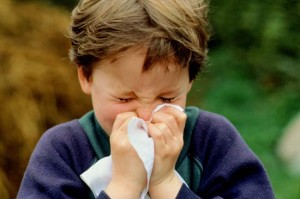Hand-foot-and-mouth disease is a mild contagious viral infection that is usually affects young children. It causes sores in the mouth and rashes on the hands and feet. Hand-foot-and-mouth disease is caused by the coxsackievirus. It can be spread through contact with bodily secretions and fluid coming from the ruptured blisters.
Symptoms
- The infection starts with a mild to moderate fever and loss of appetite. The fever usually reaches 101 degrees F or 102 degree F which is the response of the body in eliminating the virus.
- After 2 days of fever, painful sores will start to develop in the throat which causes mild to moderate sore throat. The red sores are small about 2-3 centimeters and can develop into blisters and eventually pop and becomes an ulcers which is the painful stage. These sores usually develop on the tongue, gums and the inner cheeks. Mouth sores makes it difficult to eat loss of appetite becomes worse.
- Rashes will develop on the hands and feet but does not cause itchiness.
Respiratory droplets sprayed into the air after a sneeze or a cough - A dull and achy headache and malaise which is feeling unwell and tired. These symptoms usually last for 5-7 days.
- Nausea and vomiting
- Irritability in infants and toddlers
Causes of hand-foot-and-mouth disease
- Drainage of fluid from the blisters
- Nasal secretions or discharge from the throat
- Saliva
- Respiratory droplets sprayed into the air after a sneeze or a cough
- Frequent diaper changes and potty training and cases in which young children put their hands in the mouth.
Treatment
- Drink plenty of fluids to help minimize pain when swallowing foods. Avoid being dehydrated due to fever and night sweating by drinking at least 8 glasses of water every day to help rehydrate the body and keep the mucous membranes in the mouth and throat moist.
- Rinse the mouth using a mouthwash, oral spray or lozenges that contains ingredients that numbs or lessen the pain and makes it easier when consuming liquids and soups.
- Take the prescribed over-the-counter pain medication such as acetaminophen to help lessen fever and ibuprofen to lessen the pain and inflammation caused by the blisters and ulcers.
- Suck on ice pops or ice chips to help with the condition
- Drink cold liquids such as milk or iced water.
- Eat foods that does not a lot of chewing
- Rinse the mouth using warm water after eating meals. Another way is rinsing the mouth using salt water that can be relaxing to the affected child
Tips
- Avoid direct contact with individuals who have symptoms of the infection. Infections of hand-foot-and-mouth disease are spread through nasal secretions, throat mucous, saliva and droplets from coughing and sneezing from an infected person.
- Practice proper hygiene, regularly disinfecting tables, countertops, toys and other contaminated surfaces. Frequently wash and disinfect the hands.
- Maintain a healthy immune system.

